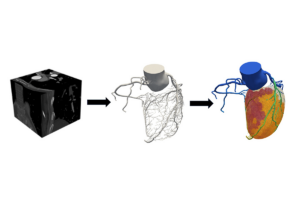AUSTIN, Texas — Integrating sustainability throughout the educational and operational activities at The University of Texas at Austin has been a focus for years, and now the Sustainability Tracking Assessment & Rating System (STARS) has given the university its first-ever achievement of a Gold rating.
The Association for the Advancement of Sustainability in Higher Education administers the STARS rating system for hundreds of higher educational institutions around the world and shares the data with the Princeton Review Guide to Green Colleges and the Sierra Club’s Green Schools rating systems.
“Achieving STARS Gold is a testament to the hard work and dedicated stewardship of our campus by staff, the focus on sustainability education by faculty, and the passion and creativity of our students,” said Jim Walker, the university’s director of sustainability. “We have high confidence in where we stand with this STARS Gold achievement.”
The elevation to STARS Gold is underpinned by recent changes in the educational and research opportunities at UT Austin. The university committed to equity in educational opportunity with memberships in First-Gen Forward and full scholarships for in-state students for families making $65,000 or less. A partnership with the George and Cynthia Mitchell Foundation has increased sustainability content in curriculum that has reached more than 10,000 students, and new sustainability degree programs in the College of Liberal Arts and Cockrell School of Engineering were launched during the past three years.
The campus district energy system is also internationally recognized as one of the most efficient plants of its kind in the world, with over 85% efficiency in 2019. The plant was recertified as a PEER Campus last year and reduced energy consumption by more than 20% during the past eight years, saving over $17 million in fuel costs. The university constructed more than 3.6 million square feet of LEED-certified space in 10 years, and it manages grounds with a holistic approach, earning the first SITES Gold certification in Texas for landscape design and operations around the new Dell Medical School.
Texas Athletics has pursued zero-waste goals for the past five years in major sports venues and has been recognized by the Green Sports Alliance two years in a row. Housing and Dining food services recently joined the Menus of Change national coalition and continue to focus on reduced plate waste, recovery of unused food and composting of food scraps. In order to reduce food insecurity for students, the Division of Student Affairs established the UT Outpost food pantry. And more than half of UT Austin’s departments conduct sustainability research that is led in part by Planet Texas 2050 and the UT Austin Energy Institute.
“The persistent, incremental work of many staff throughout campus year over year drove UT’s STARS rating, like new practices in Landscape Services, Resource Recovery, Environmental Health and Safety, and other units,” Walker said.
The next work to be done includes continued pursuit of reducing energy use in campus buildings, resilience strategies such as storm water management, and enhancing the growth of sustainability content in student curriculum.




